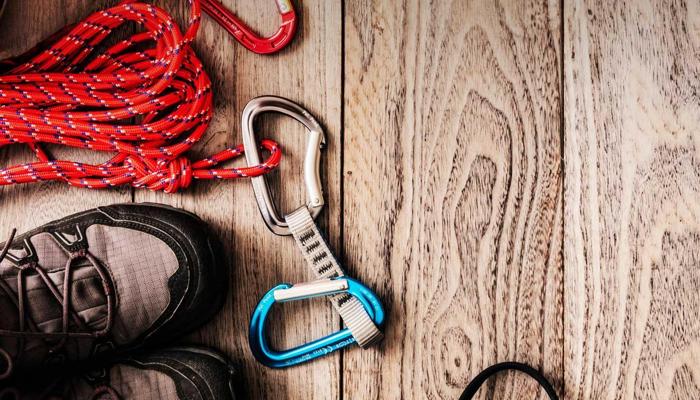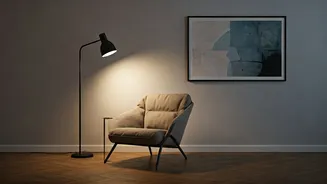Discover the must-have travel gear for backpackers! Learn what's essential for a successful adventure. Read more for expert tips
Backpacking across India or even internationally is a dream for many young
Indians. The idea of exploring new cultures, seeing breathtaking landscapes, and making memories that last a lifetime is definitely appealing.
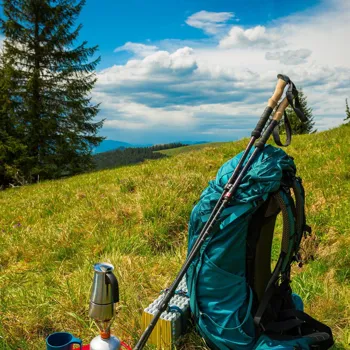
But before you pack your bags and head out, it's very important to understand what travel gear will actually be your friend, and what will just weigh you down.
This isn't about buying the most expensive equipment; it's about making smart choices that will make your journey safer, more comfortable, and more enjoyable.
Forget about those fancy gadgets you saw in advertisements; let's focus on the real essentials that will help you conquer your backpacking adventure like a pro.
Choose a comfortable, durable backpack for long trips
Choosing a backpack is the first and most important step. Comfort is absolutely key. You're going to be carrying this thing for hours, sometimes days, so make sure the straps are padded and adjustable.
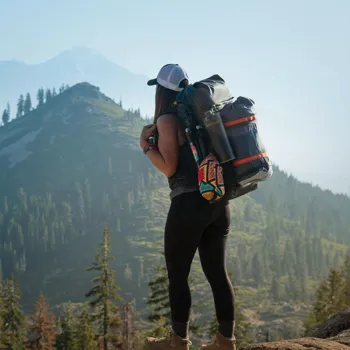
A good backpack will distribute the weight evenly across your hips and shoulders, preventing back pain and fatigue. Consider one with a capacity of around 50-70 liters. This should be big enough to hold all your essentials without being excessively bulky.
Look for features like multiple compartments to organize your belongings, compression straps to keep everything compact, and a rain cover to protect your gear from unexpected downpours. Before you buy, try packing the bag with some weight and walking around the store to see how it feels.
This simple step can save you a lot of discomfort later on. Some very popular and reliable brands among Indian backpackers include Decathlon's Forclaz range, Wildcraft, and AmazonBasics backpacks, offering good value for money.
Remember, a well-chosen backpack is an investment that will serve you well on many adventures to come.
Footwear is crucial for backpacking; prioritize comfort, durability with hiking shoes/boots
Footwear is another critical aspect of backpacking gear. Forget about stylish sneakers or heavy boots; comfort and durability are what you need. A pair of lightweight, waterproof hiking shoes or boots is ideal. Make sure they are broken in before your trip to avoid blisters.
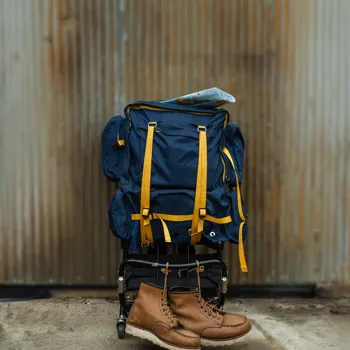
Invest in good quality socks, preferably wool or synthetic, which will wick away moisture and keep your feet dry. Pack a pair of sandals or flip-flops for wearing around hostels or guesthouses. These will give your feet a chance to breathe after a long day of walking.
Consider bringing along some blister plasters or moleskin for treating any foot problems that arise. Taking care of your feet is essential for a successful backpacking trip, as they are your primary mode of transportation.
Look for shoes with good ankle support and a grippy sole for navigating varied terrain. Brands like Quechua, Columbia, and Salomon are popular choices among backpackers for their reliability and performance.
Strategically pack versatile, lightweight clothes for travel comfort and efficiency
Packing clothes strategically is crucial for minimizing weight and maximizing space. Forget about bringing your entire wardrobe; stick to versatile, lightweight items that can be easily layered. Pack clothes that dry quickly; synthetic or merino wool fabrics are great options.
A basic packing list should include a few t-shirts, a pair of comfortable pants or shorts, a fleece jacket or sweater, a waterproof and windproof jacket, and some underwear. Also, pack a sarong or scarf, which can be used as a towel, blanket, or even a makeshift skirt.
Roll your clothes instead of folding them to save space and prevent wrinkles. Consider using packing cubes to organize your clothes and compress them further. Remember, you can always do laundry along the way, so there's no need to overpack.
Choose neutral colors that can be easily mixed and matched to create different outfits. A well-planned clothing system will keep you comfortable in a variety of climates without weighing you down.
Pack a compact first-aid kit for backpacking safety
A first-aid kit is an absolute must-have for any backpacking trip. It doesn't need to be huge, but it should contain the essentials for treating minor injuries and illnesses.
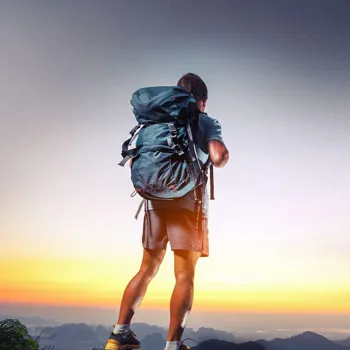
Include items such as bandages, antiseptic wipes, pain relievers, anti-diarrheal medication, motion sickness pills, and any personal medications you require. Consider adding insect repellent, sunscreen, and hand sanitizer to protect yourself from bugs, sun, and germs.
A small pair of scissors or a multi-tool can also be useful. It's a good idea to familiarize yourself with basic first-aid procedures before your trip. Knowing how to treat a cut, sprain, or insect bite can make a big difference. You can buy pre-made first-aid kits or assemble your own.
Make sure to check the expiry dates of all medications before you leave.
Pack light with essential gadgets for travel convenience
Staying connected and powered up is important, but it doesn't mean carrying every gadget you own. A smartphone is incredibly useful for navigation, booking accommodations, and staying in touch with loved ones. Consider bringing a portable charger or power bank to keep your devices charged on the go.
A universal travel adapter is essential for charging your electronics in different countries. Download offline maps and translation apps before your trip. This can be a lifesaver when you don't have access to the internet. A headlamp or small flashlight is handy for navigating in the dark.
Avoid bringing unnecessary gadgets that will only add weight and bulk to your pack. Focus on the essentials that will help you stay safe, connected, and informed.
Pack essential small items for travel comfort
Finally, don't forget the small but essential items that can make a big difference on your trip. A reusable water bottle is crucial for staying hydrated and reducing plastic waste. A travel towel is lightweight and quick-drying, perfect for hostels and beaches.
A padlock can be used to secure your belongings in lockers or dorm rooms. Earplugs and an eye mask can help you sleep in noisy environments. A small notebook and pen are useful for journaling or jotting down important information.
A deck of cards or a small travel game can provide entertainment during downtime. These small items don't weigh much, but they can significantly improve your comfort and convenience.
AI Generated Content. Glance/InMobi shall have no liability for the content